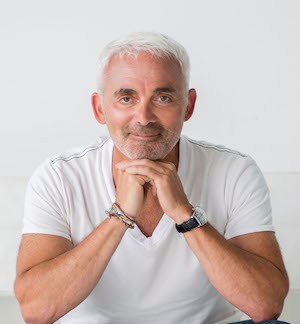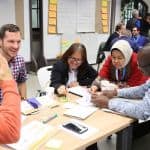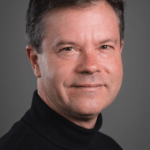Moving Past Traditional Philanthropy: A Q&A with Enterprise Development Pioneer Frank Giustra
Several months before the COVID-19 crisis began, I reached out to the communications professionals at the Clinton Giustra Enterprise Partnership (CGEP). I had hoped to talk to them about the organization’s spin-off from the Clinton Foundation into what they were now calling Acceso, a new entity focused on building businesses and connecting them to the broader marketplace, particularly in Latin America.
I was pleasantly surprised to be put in contact with Frank Giustra himself, the Canadian businessman and philanthropist who created CGEP through a $100 million donation to the Clinton Foundation. Giustra is a mining financier who also founded Lionsgate Entertainment before turning his attention to philanthropy. (See previous articles about CGEP’s work here and here).
Since that time, the COVID-19 pandemic has put a lot of work on hold. But thanks to the assistance of Acceso’s communications team and to Giustra himself, our interview remained on track. In the following Q&A, he explains Acceso’s new direction as an independent entity, how it is investing directly in small businesses, and several things he’s learned as one of the early financiers in socially focused enterprise development.
Sidenote: Giustra’s connections with the Clinton family have led to some critical press coverage over the years. Whether readers see those topics as legitimate controversies or conspiracy theories, they are not what this interview is about. And as a nonprofit media site that endeavors to avoid politics, we won’t linger on those issues. Still, there are many valid critiques of the role of billionaires in philanthropy and impact investment. To his credit, Giustra fielded my question on the topic.
(Full disclosure: NextBillion’s parent organization, the William Davidson Institute at the University of Michigan, has worked with CGEP in the past. You can read more about that project here.)
Scott Anderson: We began this discussion several weeks before the COVID-19 crisis started. It seems appropriate to first talk about what impact it is having on the work of Acceso and its businesses. How are they adapting?

Frank Giustra
Frank Giustra: Our businesses are a critical source of food for local communities in the countries where we work – in addition to a continual source of income for thousands of farmers. Our businesses have been able to stay open, as we are essential supply chains. Thankfully revenues have not dropped drastically yet, as our supermarket and retail clients have maintained demand; however, there has definitely been a drop in demand from restaurant chains, and we are in the process of assessing how that will impact 2020 results – and any additional funding support we may need.
Where our products are part of broader social or nutrition-based projects (like in Haiti where we supply organizations like Partners in Health and schools, and in Colombia and Venezuela where we supply food kitchens run by ABACO Colombia, World Central Kitchen and Wayuu Taya Foundation with fresh produce to feed Venezuelan refugees) we are doing our best to maintain our deliveries, if not increase them. I’m proud of our team for stepping up to the challenge and working so hard during this difficult time – and our priority is keeping our teams, farmers and supply chains safe.
SA: My impression is that Acceso was structured very differently than many other foundations, particularly for the time when you began building businesses about seven years ago. For one, investments were made directly in agribusinesses that work closely with smallholder farmers and fishers. Can you explain the motivation for establishing the organization in this way?
FG: My mission has always been to find sustainable ways to alleviate poverty. We approached poverty alleviation in two distinct phases during our 12-year history [at CGEP]. During the early years of the organization (2007-2012), we supported multiple health and economic development projects through grant funding and project management. These projects included cataract surgeries, maternal and child nutrition, and farmer training to name a few. We determined that while these projects certainly had impact in their communities, they were not very sustainable because they relied heavily on grant funding; and they were not scalable or replicable as they were fairly unique and targeted to specific communities.
Based on a strategic review of Acceso’s early projects, I felt that we were not doing enough. I really wanted us to have a game changer, something more sustainable and impactful. Beginning in 2012-2013, we decided to test a social business model with the goal of building, investing start-up capital into, and scaling businesses that were replicable. I was prepared to take the early-stage risk and put in the start-up capital to do this. The intention behind building for-profit social businesses is that the profits are meant to be reinvested into the business. Without profits, our work will not be sustainable. Also, until we landed on our current model, I never felt our impact could be substantial enough.
We also decided to build the capacity and expertise of building businesses in-house, so that we could develop a rigorous process, learn from our experience and adapt it to new geographies to become more efficient and successful at replicating. Many impact investors are looking for profitable or close to profitable businesses, but we were prepared to actually build from scratch. Fortunately, looking back on that decision, it seems to have played out well. It hasn’t been easy and there have been a lot of challenges. But in seeing our businesses in El Salvador, Haiti and Colombia firsthand during a trip I made at the beginning of March, I am very impressed with the work our teams have done, and I’m convinced we have a successful model that can be replicated in other countries, either by us or by other organizations.
SA: Acceso seemed to take more of a systems approach in the realm of agribusiness, connecting smaller players to the larger supply chain and distribution channels. In the first few years, what sorts of metrics did you examine to see if you were on the right track?
FG: I’m glad you raise this question, because a systems approach and establishing businesses tailored to market needs are core to our model. We effectively reverse engineer from demand to build our businesses: First, we understand market needs and challenges, and then we assess how we can bridge the gap between the market (large retailers, supermarkets, restaurants and other buyers) and small producers. There are both financial and social metrics that have been key to assessing our impact. On the social impact side, we focused on increasing farmer incomes and creating jobs:
- Farmer income. We believe that increased incomes allow farmers to better contribute to their families’ well-being, and to lift them out of poverty with dignity. We pay farmers fair prices for their products and we measure direct farmer sales to Acceso as well as estimated farmer sales to other buyers, since the technical assistance provided by our businesses improves the productivity of farmers’ total crops, not just those sold to Acceso. Also, one of the most satisfying achievements has been hearing from many of the farmers how the extra income has been used to pay for their children’s education.
- Jobs created. I’ve always believed that the real way out of poverty is through jobs. If you can create jobs, and give people a source of real income, then poverty will take care of itself. While Acceso’s businesses create long-term income opportunities for farmers, farmers’ income growth allows them to employ farm workers, further creating local employment opportunities. Acceso’s businesses also create long-term jobs for its business staff (management, farmer technical assistance, operations), logistics staff (in-house or outsourced), and processing (mostly women working in Acceso collection centers or local co-operatives that we contract with). During our recent trip to El Salvador I met a farmer named Hugo who has been working with us for five years. He started with one employee and now employs 15 people on his farm. He told me his dream was “to keep growing so I can continue generating jobs and make a better life for other families.” That makes our work worthwhile. I believe there are two things that alleviate poverty in the long run: jobs and education, and we are addressing both.
On the financial or commercial side, we look at key metrics like sales and profit with the goal of reaching profitability within five years. Our approach is always market driven. In our early years, we really focused on making sure we had the right product mix and the right clients so that we could grow and scale into local channels/markets. Larger clients typically have higher quality standards, but we knew that they were key to growth, so we monitored farmer production very closely and implemented necessary practices like Good Agricultural Practices training to make sure they were where we needed them to be.
SA: Are there a few success stories that come to mind?
FG: One of our main success stories is our partnership with Super Selectos, El Salvador’s largest supermarket chain, which has more than 100 local stores. With the intention to support economic development in local communities, by partnering with Acceso they were able to increase their local sourcing from less than 10% to more than 50% within a few years. Acceso also grew from becoming a small supplier to their largest supplier by sales and volumes. Both organizations consider this a win-win, as our partnership has created opportunities for local farming communities while also boosting the local economy. We’ve also spoken to multiple farmers who have either moved back from the U.S. or decided not to move to the U.S., as they realized how profitable farming could be. I think it’s incredible that we can help reverse the flow of migration.
SA: There must have been at least some failures. Can you cite a couple and discuss what you learned from them?
FG: I am glad that we had the chance to test different models in different geographies over the past several years. While we’re currently focused on building and managing agribusinesses in Latin America and the Caribbean, we also piloted and built several agribusinesses in Africa and Asia, as well as tested and built inclusive distribution businesses in several countries, and a vocational training business in Colombia. Some of these businesses were more successful than others, and we ultimately decided to focus on the agribusiness model as we had achieved strong proof of concept within a reasonable timeframe, while transferring other successful pilots or businesses to partners.
In our early years of building businesses, we ended up closing one of our agribusinesses because it was a new product which involved a fair amount of uncontrollable risk related to weather and potential crop spoilage. This was a joint decision between us and our buyer/partner. The main lesson we learned is that building successful, profitable businesses is not easy; it takes time and hard work, and even more so when working with low-income populations. Patient capital and the right partners who genuinely care about social impact (beyond public relations), who have “skin in the game,” and who understand the risks of working with small producers and entrepreneurs are supremely important. We also learned from past projects that if we did not assess demand or the market first, all of our work and funding on the supply/farmer side (training, etc.) may not result in high social impact or sustainability.
SA: Philanthropy is facing a good deal of skepticism these days from many sources. There’s been growing concern that philanthropic organizations that are established by billionaires, no matter how well-intentioned, are mainly a salve to social/environmental ills, and that policy makers really should focus on increasing marginal tax rates on high net-worth individuals to pay for more social programs. What is your response to that?
FG: I am not a billionaire and never will be, as I give my money away too fast to ever become one. I personally don’t believe there should be billionaires, period. I would also like to direct readers to a recent article I wrote entitled “Who Wants to be a Billionaire? I Don’t”.
SA: Impact investing has come a long way in the last 13 years. We’ve definitely been witness to a mainstreaming of ESG as well. What do you consider the greatest mark(s) of progress – and what is concerning you on the horizon?
FG: I’ve seen a real change in the world of philanthropy over the last 10-15 years. Donors want to see a return on their giving. They want to see that projects can be sustainable, as opposed to being funded continuously year after year. It’s therefore not surprising to me (and personally encouraging) that impact investing is becoming more mainstream, driven by increased social consciousness. In the last few years, we’re also seeing more and more international non-profits getting into impact investing, which is a sign that organizations are thinking about the sustainability of their work relative to traditional philanthropic models.
One mark of progress we’ve seen is a subset of impact investors who are truly “social first.” This includes some of our partners, such as Acumen in Colombia and Global Partnerships in El Salvador. We’re also seeing collaboration between grant funders and impact investors, particularly in the early stages of a social business – which is critical to de-risk investments, paving the way for later-stage investors. Finally, we have been encouraged by innovative funding models such as Kiva’s crowdfunding program for social enterprises, which our business in El Salvador has benefitted from.
Related to that, an ongoing area of concern is that the funding needs of the “missing middle” (social businesses with funding needs roughly between $100,000 to $2 million) are still largely unmet, particularly in the smallholder agriculture space. Traditional fund structures, including those of some impact investors, are not set up to efficiently deploy capital at those lower ticket sizes, meaning that it is still inherently difficult for many impact investors to be truly social-first. Some investors still believe it’s fairly easy to be profitable early on while solving major issues, and the truth is that businesses working with very poor populations have a whole set of challenges that investors have to understand and factor into their risk tolerance.
SA: Finally, CGEP recently spun off from the Clinton Foundation and established itself as Acceso. Can you explain why this is happening now – and how will Acceso operate with this new structure?
FG: Last year, I made the announcement that I was stepping down from my business interests and would focus the majority of my time on my philanthropy. I love my philanthropic work with all my heart. I consider Acceso my life’s work. I enjoy being hands-on and I get real satisfaction spending time with our beneficiaries. This was the highlight of my trip to our businesses in March: hearing the stories of farmers and employees, and figuring out what opportunities we still have to grow.
In relation to spinning off from the Clinton Foundation, this is an exciting next step and a natural evolution for us. As a builder of social businesses, I believe Acceso’s operating model is suited for an independent organization. I am grateful to the Clinton Foundation for their partnership, and I’m also excited about this new phase as I take on full management of our work. I know our team is excited about this new phase as Acceso as well. Our focus remains building, managing and scaling agribusinesses in Latin America and the Caribbean to sustainably lift farmers and fishers out of poverty, and identifying opportunities for future replication. The day-to-day operations of our local Acceso businesses remain the same, and we are looking forward to expanding our work alongside current partners – as well as increasing our investor base as we have done in the last one to two years. I truly believe we are a leading showcase and success story for social businesses in the agriculture space.
Scott Anderson is communications manager at the William Davidson Institute and a contributing editor at NextBillion.
Photos courtesy of Paramo Films / Acceso.
Main photo: Giustra meeting with Acceso Colombia potato farmers in Boyacá, Colombia.
Homepage photo: Giustra meeting with Acceso Haiti farmers in the Central Plateau of Haiti.
- Categories
- Agriculture, Investing, Social Enterprise




